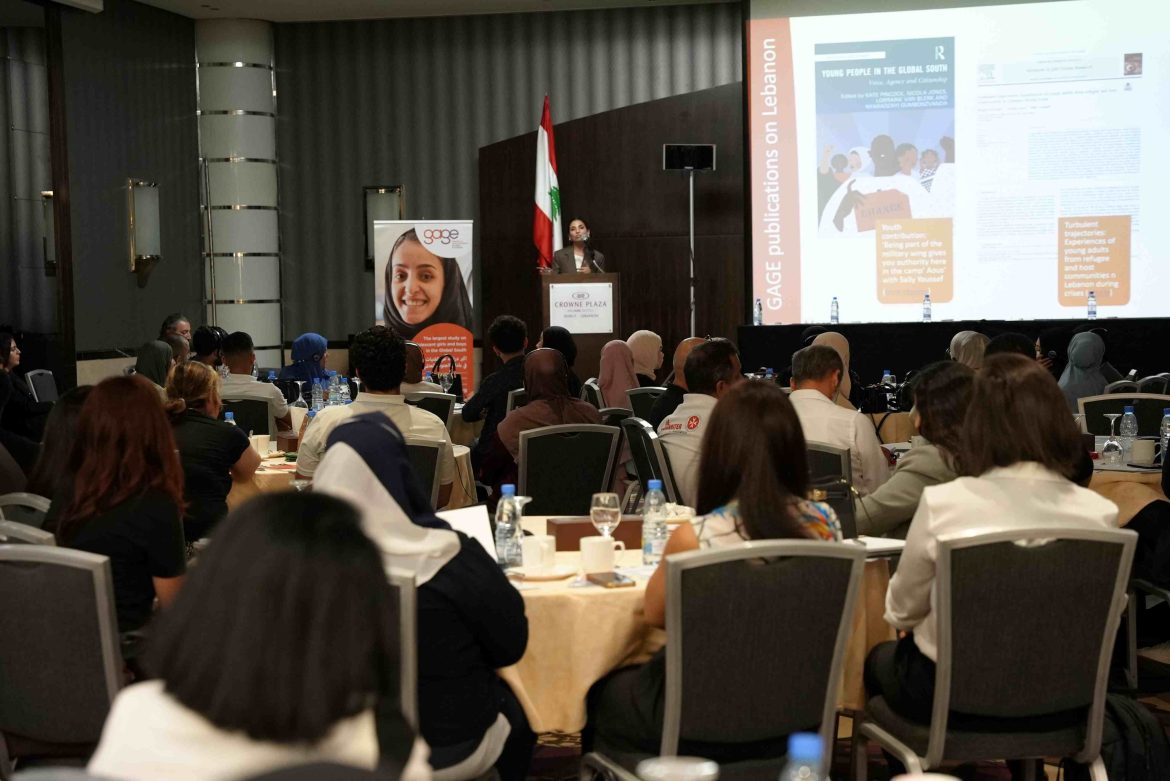Beirut, 30 September 2025 – The Gender and Adolescence: Global Evidence (GAGE) Programme, funded by UK aid and managed by ODI Global in partnership with the Lebanese Organization for Studies and Training (LOST) and Developmental Action without Borders (Naba’a), held its Endline Conference at the Crowne Plaza Hotel in Beirut on September 25, bringing together youth researchers, academics, UN agencies, ministries, and civil society. The event reflected on seven years (2019–2025) of participatory research with over 100 adolescents and young people from Syrian and Palestinian refugee communities and vulnerable Lebanese host communities.
The conference showcased evidence on how overlapping crises in Lebanon – economic collapse, political instability, COVID-19, displacement, and the 2024 war – have profoundly limited adolescent girls’ and boys’ ability to exercise voice and agency. GAGE’s longitudinal participatory research highlighted how young people’s ambitions, psychosocial wellbeing, and civic participation have been undermined by shrinking safe spaces, disillusionment with state institutions, and daily struggles for survival.
A panel of GAGE youth researchers—including a young Syrian woman who had been married at 15 years and a young Lebanese man whose education had been truncated by child labour—reflected on their transformative journey within the programme. They explained how participation taught them to listen respectfully and engage with diverse opinions; allowed them to share their voices and experiences when public spaces were unavailable; and built their self-confidence and critical thinking skills. The youth emphasized that safe spaces such as those fostered by GAGE are not only vital for expression but also play a role in violence prevention, peacebuilding, and fostering intra- and inter-community cohesion.
Representatives of key agencies and ministries highlighted priorities for adolescent-responsive programming. UNRWA underlined how funding cuts have reduced empowerment opportunities for youth and stressed the urgent need to safeguard these spaces. UNHCR emphasized the role of annual Participatory Assessment Reviews in ensuring young people’s feedback regularly informs programme design and delivery. UNICEF highlighted the importance of cross-sectoral approaches, such as the UNICEF community multi-service Makani programme, to holistically address young people’s needs. The Ministry of Social Affairs (MoSA) called for stronger cross-agency collaboration to ensure government policies are aligned with adolescents’ realities and support their empowerment, while the Ministry of Education and Higher Education (MEHE) outlined ministry efforts to expand platforms for voice and agency nationwide, particularly through student councils and structured sports activities.
Speakers and participants agreed that adolescents’ lived experiences and aspirations must inform future policies and programming in Lebanon. The event concluded with calls to prioritize youth-responsive social protection, invest in quality education and skills-building, expand safe spaces for participation with particular attention to the specific challenges adolescent girls face on account of entrenched discriminatory gender norms, and strengthen youth agency as a pathway to resilience, inclusion, and peace.

